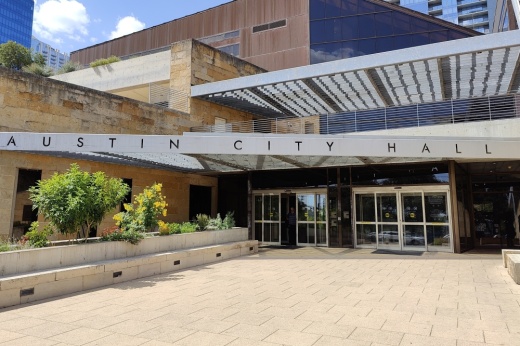“This has been a thorny and difficult issue through many different lawsuits and permutations," council member Chito Vela said. "I feel like we’re finally getting to a point where we have a workable, enforceable STR ordinance that will be able to stand up to legal challenge and also generate the hotel occupancy tax that we’ve been trying to get into the city coffers."
What happened
For years, Austin hasn't been able to keep up with the spread of rental units that aren't registered with the city—and that haven't been paying hotel occupancy tax, or HOT, that support local cultural initiatives. Multiple attempts to tackle the issue ended up stalling out, leading to a new look at regulations that advanced earlier this year but had been on hold during state legislative sessions.
From licensed STRs only, the city recently collected around $7 million in HOT annually and is projecting more than $11 million from rentals through the current fiscal year 2024-25. That revenue comes from the less than 2,500 STRs officially licensed with the city today.
However, third-party projections put the actual number of rentals operating around town at many times that total—Inside Airbnb estimates more than 13,500 are currently active—and officials have suggested HOT collections could jump with more effective licensing and enforcement in place. The Development Services Department, which oversees STRs, also reports 94% of complaints to the city related to short-term rentals are from unlicensed units.
The new policies are aimed at making it easier to strike unlicensed STR listings from platforms like Airbnb and Vrbo, and ensure full tax collections are taking place. Council members also made adjustments to streamline the licensing process, and allow renters as well as property owners to participate in the rental market with sign-off from a landlord.
"When we talk about housing, we have to ensure that they are part of the conversation and can participate in the programs we offer," said council member José Velásquez, who brought that update.
Other changes going into effect Oct. 1 include extending STR licenses to cover two years rather than one; requiring STR operators to have an Austin-area contact to more quickly address potential problems; updating processes for responding to property complaints and designating rentals as nuisances; and sending more frequent STR licensing notifications to neighbors.
Some new mandates for rental platforms like Airbnb won't apply until next summer. Starting in July, platforms will have to publicly display city license numbers and remove unlicensed listings at Austin's request.
Also of note
Up to two rentals will now be allowed on lots with multiple housing units. Council member Ryan Alter forwarded a change that keeps rentals from being situated within 1,000 feet of another property with STRs, rather than other rental units as had been originally proposed. That update passed with opposition from council members Marc Duchen and Mike Siegel, who said allowing multiple STRs on lots reinforced community worries about the impact of the multiunit "HOME" development policies that went into effect last year.
“I’m concerned that this amendment supports that view, that the benefits of allowing three houses per lot will not be felt by Austin residents but instead the benefits would go towards tourists who are visiting our community," Siegel said.
Rentals will also now be capped at at 10% of total units in a multifamily building—unless the property features commercial space, in which case up to 25% of units could serve as STRs. Vela said that change was meant to address tension between short-term rentals and long-term housing in apartments, while encouraging mixed-use development.
One more thing
One proposed restriction that won't go into place is a location-based STR cap to reduce impacts in certain neighborhoods, a concept that'd been previously attempted but faced legal challenges.
Duchen suggested limiting the number of rentals that could operate within individual census tracts around Austin. He said the move would've kept more housing open for Austin's residents and creative community, rather than out-of-towners.
“While our creative economies benefit from the HOT collection, those industries also require a supply of affordable homes in safe, livable environments," Duchen said. "We have the ability to mitigate the impact of STR proliferation on our housing supply, and the potentially profound effects it has on neighbors and neighborhoods."
City staff shared some reservations about that plan, stating that geographic STR caps my be impractical and difficult to enforce. Vela said the restrictions could push rental operators off more mainstream rental platforms and back outside of city oversight.
“When you shut people out of the market, if the financial incentive is there, they’re going to try to participate in the market whether they are doing it legally or not. And so we end up with high levels of noncompliance that we experience today," said Daniel Word, an assistant director with the Development Services Department.
Officials ended up rejecting the location limit concept in a 3-8 vote, with only Duchen, Alter and Mayor Pro Tem Vanessa Fuentes in support.





